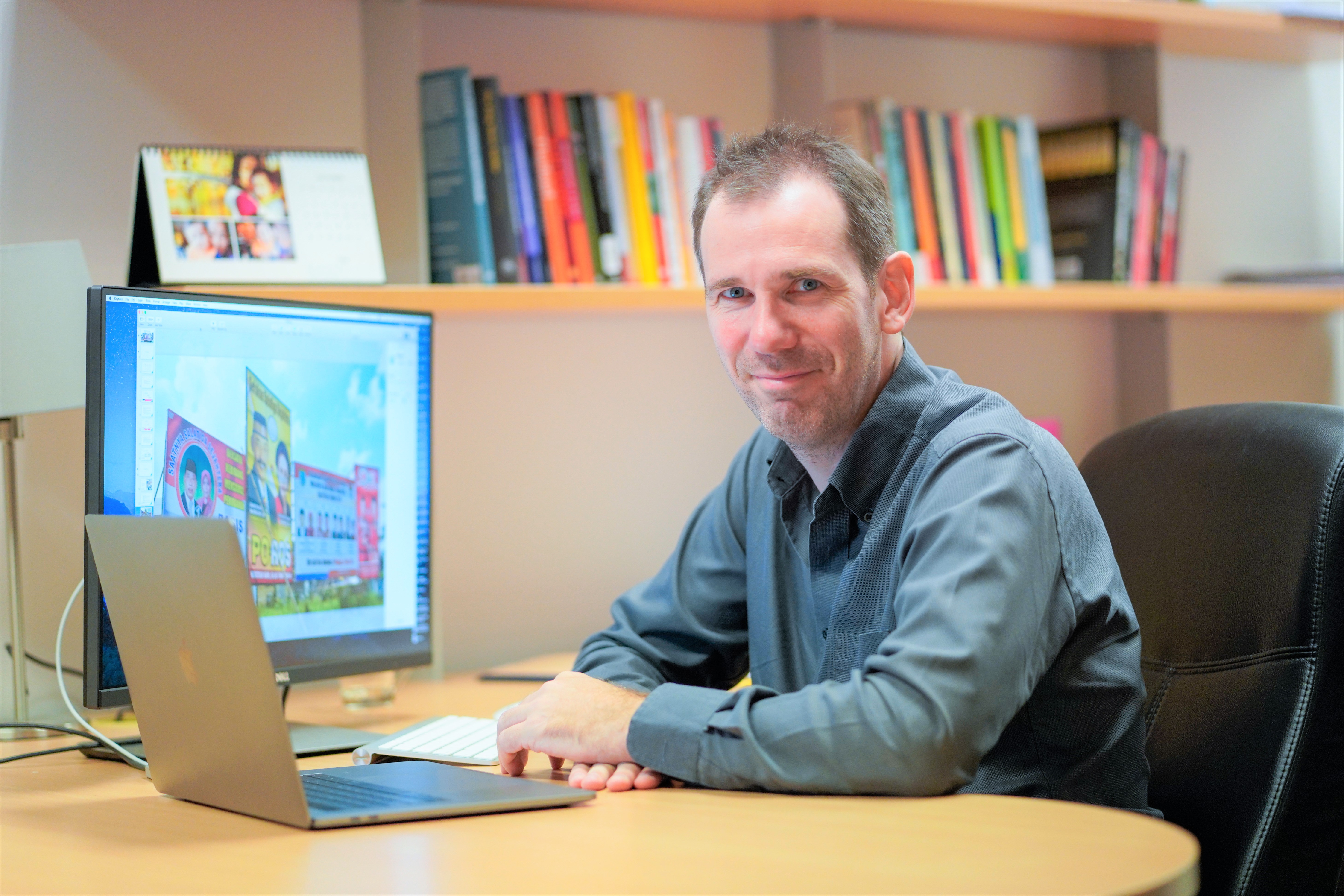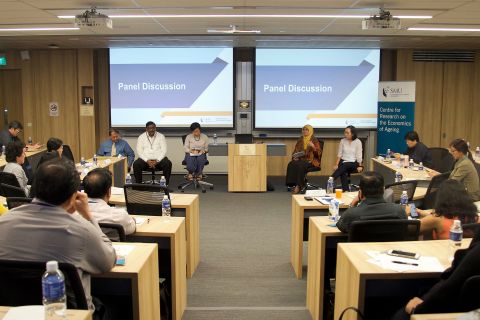
By Jeremy Chan
SMU Office of Research & Tech Transfer – From the Olympic Games to chess tournaments, contests of skills and wits can bring out the best and worst in people. Strength, endurance and mental fortitude are brought to bear in an effort to defeat an opponent, but on the other hand, doping and cheating sometimes occur as contenders vie for top spot.
A similar situation might be observed in politics. During democratic elections, some candidates compete solely on the basis of merit, while others may find leverage by appealing to certain groups in society. The politicisation of ethnicity and religion in the race for political office is a subject close to the heart of Assistant Professor Colm Fox of the Singapore Management University (SMU) School of Social Sciences, who says that research on Southeast Asian politics is “never dull”.
“Southeast Asia is a fascinating part of the world to live in and to study elections and regimes,” he says. “The region has a rich mix of democratic, semi-authoritarian and fully authoritarian regimes. This offers many opportunities for comparison which can add to our understanding of elections and regimes.”
In defence of diversity
Having grown up in Ireland, where nationalism and inter-religious conflict were prevalent political issues, Professor Fox gravitated towards trying to understand identity politics and how it affects political behaviour. But his interest in Southeast Asia was sparked later in life, after he left his position as an art director at a firm making online games to pursue a master’s degree in international relations at the University of California, San Diego. There, he was required to pick a region on the Pacific Rim to specialise in.
“Because of my interest in ethnic and religious diversity, the best choice for me was Southeast Asia. It was then that I began studying the politics of the region. I haven’t looked back since,” says Professor Fox.
Noting that elections are points in time when the salient issues and identity cleavages within a society become more prominent or visible, Professor Fox has spent a considerable amount of time gathering campaign materials to understand the conditions under which candidates politicise ethnicity or religion. While some hold that ethnic and religious diversity are bad for democracy and foster conflict, Professor Fox has found that ethnicity tends to be most politicised in electoral districts that are largely homogenous, but least so in electoral districts that are more ethnically diverse.
In a working paper titled ‘Playing the Ethnic Card? How Ethnic Diversity Reduces Ethnic Politicization’, presented at the 2017 Southeast Asia Research Group meeting in Vietnam, he reported that in district head elections in Indonesia, religious appeals were most frequent in districts with a large Muslim population (approximately 85 percent) and many small indigenous groups. This demographic structure is common in many of Indonesia’s largest cities, including Jakarta. Indeed, religion became a major issue in Jakarta’s much-publicised 2017 gubernatorial election.
“There is a logic behind this behaviour. Candidates want to expand their potential support as much as possible, so in ethnically diverse districts they avoid appealing to small ethnic groups. Instead, they often appeal to higher and more inclusive forms of identification, like nationalism or regional identities. This suggests that high levels of ethnic diversity in electoral districts may be the best defence against ethnic politicisation,” says Professor Fox.
A medium for manipulation
In addition to campaign advertisements, the mainstream media is another platform for political candidates to spread their political message. Ideally, free and open media reporting means that all available candidates receive equal and factual coverage, but this is sometimes not the case in Southeast Asia. In Indonesia, for instance, ownership of media outlets and profit motives can affect political coverage in different ways, says Professor Fox.
“While the Indonesian media is relatively free at the national level, some of the larger media companies are owned by politicians or business people with strong political ties, and this can result in slanted national coverage of elections,” he adds.
On a more local level, Professor Fox observes that electoral competition provides much-needed revenues for provincial newspapers, with candidates spending considerable sums on campaign advertisements and profile pieces.
Thus, instead of being a critical voice, the local press presents wholly positive coverage of all candidates. As a result, voters are less informed on the quality of candidates, and on occasions have elected politicians who are later convicted of corruption, says Professor Fox.
“However, the pragmatic nature of the press has one advantage: it means that provincial newspapers are willing to publish positive pieces about candidates regardless of their ethnic or religious identity,” he points out. Ironically, a mercenary press could actually help political candidates from minority groups reach a wider audience.
Getting personal about politics
To obtain these intimate insights into Southeast Asian politics, Professor Fox has had to travel to countries in the region during election cycles. Because some Southeast Asian governments are suspicious of political science research, getting research visas is a challenge, he says, and the threat of expulsion is real in a number of countries.
Nonetheless, Professor Fox has accumulated identity data on thousands of candidates and gathered thousands of election-related newspaper articles from archives across Southeast Asia. His interest in visual politics has also driven him to photograph almost 30,000 posters used in various elections in Indonesia and Thailand. Taking a digital scalpel to this body of evidence, he employs software and programming tools to analyse both the visual and textual content of these materials.
Going forward, Professor Fox is keen to understand the personalisation of politics, which refers to the rising prominence of individual politicians based on the sheer force of their character or personality.
“Research in the west suggests that personalisation has been on the rise. However, very little research has been done on this topic in Southeast Asia, so I’m interested in exploring the phenomenon in Indonesia, Thailand, Malaysia and the Philippines,” he says.
Back to Research@SMU Issue 56
See More News
Want to see more of SMU Research?
Sign up for Research@SMU e-newslettter to know more about our research and research-related events!
If you would like to remove yourself from all our mailing list, please visit https://eservices.smu.edu.sg/internet/DNC/Default.aspx

